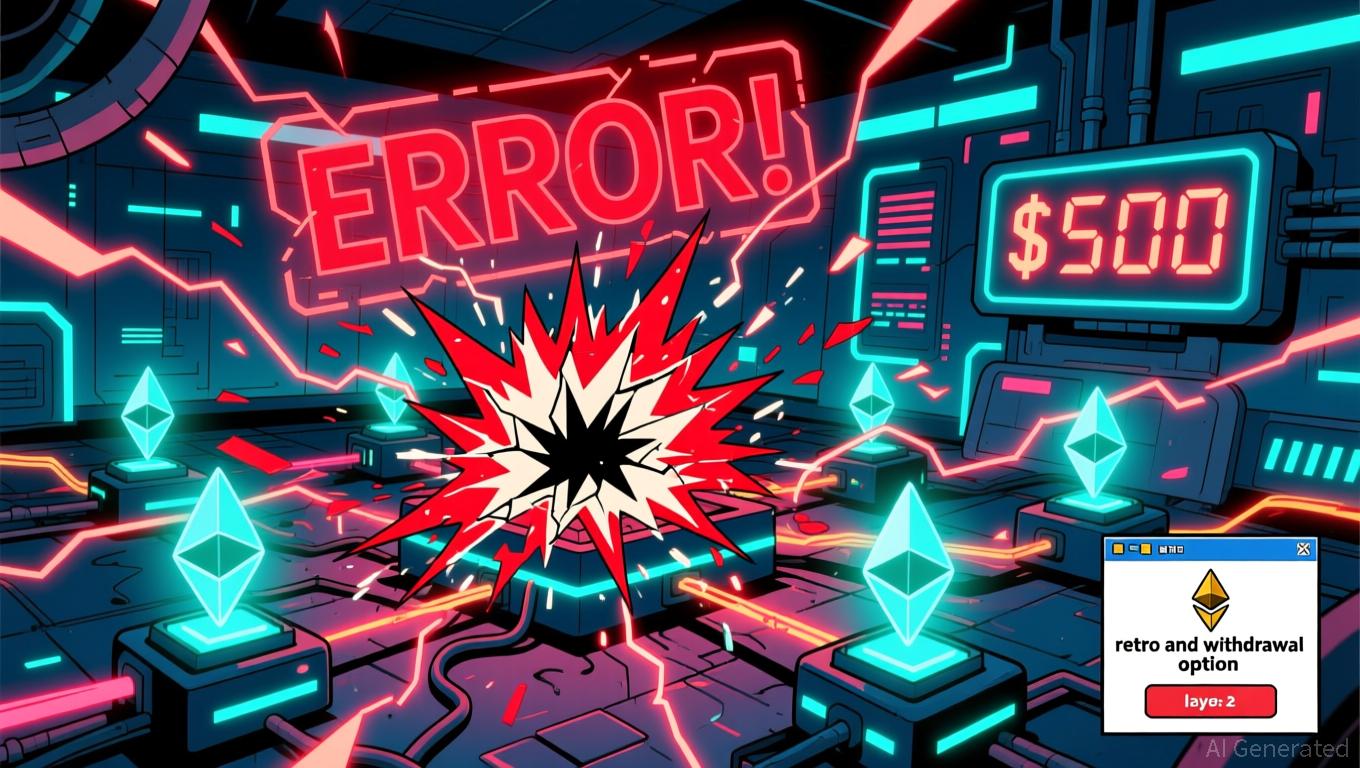Stellar News Today: Connecting Traditional Banking with Blockchain: U.S. Bank Pilots Stablecoin for Around-the-Clock Transactions
- U.S. Bank tests dollar-backed stablecoin on Stellar blockchain for 24/7 payments, leveraging its asset-freeze capabilities. - The initiative addresses banking clients' needs for compliance, transaction flexibility, and real-time cross-border solutions. - Industry trends show growing stablecoin adoption by institutions like Citigroup and Western Union amid rising payment costs. - Regulatory challenges persist, but Stellar's institutional focus and $32B annual volume highlight its appeal for digital asset
U.S. Bancorp is piloting a stablecoin tied to the U.S. dollar on the
Mike Villano, who leads digital asset products at U.S. Bank as senior vice president, pointed to Stellar’s distinctive capabilities as a major advantage. "

Stellar was created as a public blockchain tailored for financial services and has seen increasing adoption by institutions. The platform, which facilitates tokenized assets and international payments, processed $32 billion in transactions last year and now has
The project from U.S. Bank is part of a larger movement among established banks to incorporate stablecoins into their services. In October, the bank revealed the formation of a digital assets and money
This development also highlights the growing competition in the stablecoin market. Citigroup Inc. has recently teamed up with
Experts interpret this trend as a reaction to the increasing costs of cross-border payments and the demand for instant settlement. Stablecoins are seen as a way to reduce dependence on conventional banking systems, though regulatory oversight remains a challenge. U.S. Bank’s focus on compliance and flexible transactions could serve as a model for other banks exploring the digital asset space
As the banking industry continues to evolve alongside the rise of cryptocurrencies, U.S. Bancorp’s experiment with a Stellar-based stablecoin underscores the increasing convergence of traditional finance and blockchain. The results may shape how banks balance innovation and risk management in the future.
---
Disclaimer: The content of this article solely reflects the author's opinion and does not represent the platform in any capacity. This article is not intended to serve as a reference for making investment decisions.
You may also like
Bitcoin Updates Today: Bitcoin's Volatility: Surrender or Endurance from Institutions?
- Bitcoin's recent price drop and negative funding rates suggest market capitulation, with open interest collapsing 32% since late October 2025. - Institutional holdings like KindlyMD's $681M BTC stash and Harvard's ETF investments highlight growing long-term confidence in Bitcoin's stability. - Q3 2025 crypto VC surged 290% to $4.65B, while experts diverge: Standard Chartered targets $200K BTC by year-end, Kraken predicts $80K–$100K consolidation. - Macro risks including Japan's reserve rules and AI-drive

MegaETH's $500 Million Technical Issues Underscore DeFi's Ongoing Challenges with Maturity
- MegaETH abandoned plans to expand its $250M token sale after technical failures froze deposits at $500M and triggered unintended transactions. - The protocol announced retroactive compensation for affected users but faced criticism over preventable errors in KYC systems and multisig execution. - The incident highlights DeFi's operational challenges, contrasting with Aztec's success in achieving full decentralization with 525 validators. - Critics argue such missteps risk eroding trust in protocols promis

Paxos Combines Regulated Asset Storage with DeFi Protection Through Fordefi Acquisition
- Paxos acquires Fordefi for over $100M to enhance DeFi custody solutions via MPC wallet integration. - The deal combines Fordefi's institutional-grade security with Paxos' regulated infrastructure for on-chain transaction management. - This marks Paxos' second major acquisition in 2024, following Membrane Finance, as DeFi protocols hold $116B in total value locked. - The move aligns with global regulatory shifts toward DeFi oversight and growing institutional demand for secure crypto infrastructure.
Ambition Surpasses Action as MegaETH's $1 Billion Fundraising Effort Falls Apart
- MegaETH abruptly canceled its $1B token sale after technical failures caused a $500M deposit surge beyond the $250M cap. - KYC system malfunctions and premature multisig execution exposed critical operational vulnerabilities in the project's infrastructure. - While no assets were lost, the incident sparked criticism over preventable errors and raised industry concerns about token sale readiness. - MegaETH faces credibility challenges as it scrambles to fix protocols and offer refunds, highlighting risks
